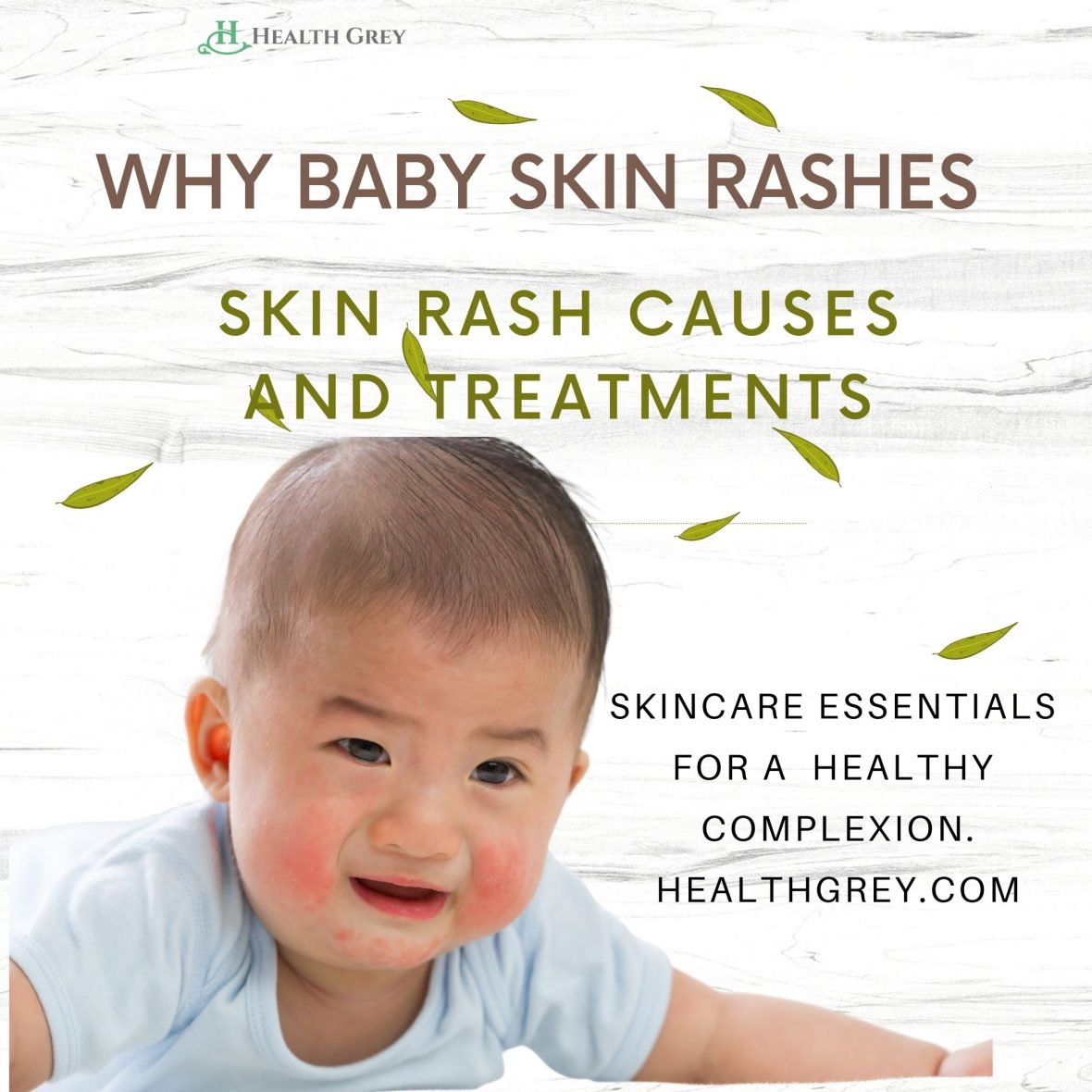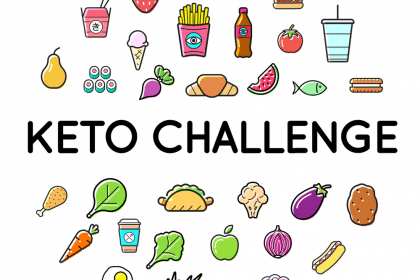Many facial rashes in babies are common and appear to clear up without medication. Causes may include eczema, infection, and acne. However, occasionally, a rash on the face of a baby may signify a more severe condition.
There are several kinds of rashes involving different areas of the body of an infant. Usually, these rashes are very treatable. While they may be unpleasant, they are not a reason for worry. Rashes seldom represent an emergency.
Often, a more severe condition may be demonstrated by baby rashes. We’re going to talk about various kinds of baby rashes, how to treat them, and when to contact the doctor.
Baby skin rash causes
Babies have relatively new skin and immune systems that grow. Their skin is vulnerable to multiple causes of inflammation or infection and is susceptible. Causes of baby rashes include:
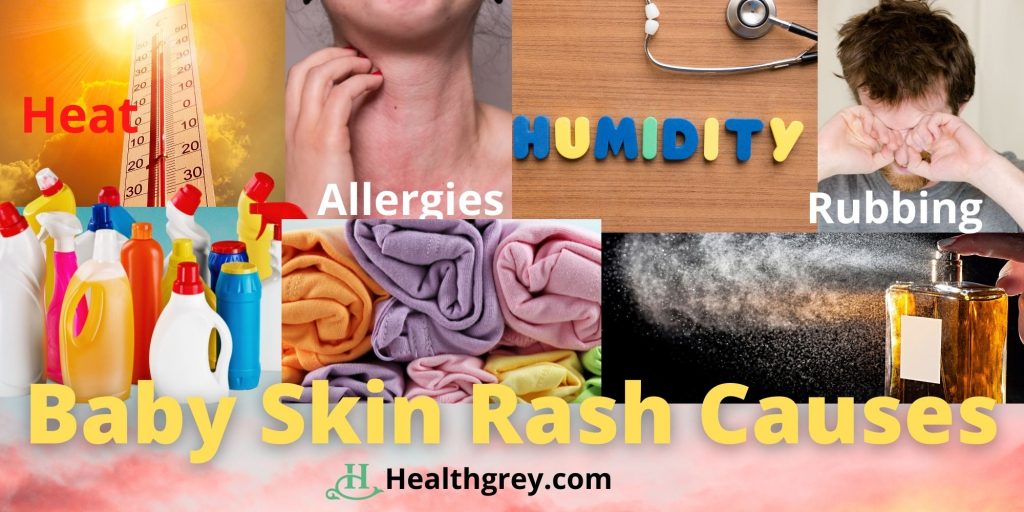
- Heat
- Allergies
- Rubbing
- Humidity
- Chemical compounds
- Perfumes
- Textiles
And their own contaminants are able to irritate the skin of a baby and cause a rash. Rashes can also be caused by a virus and bacterial infections.
Nearly every single part of the body of your baby will be affected, depending on the cause of the rash:
- Face
- Head
- Trunk
- Arms
- Thighs
- Hands
- Foot
- Region of Diaper
- Folds of skin
Rashes are one of the causes of acne, if you are facing this then must visit Most Effective Home Remedies For Acne
Baby skin rash treatments
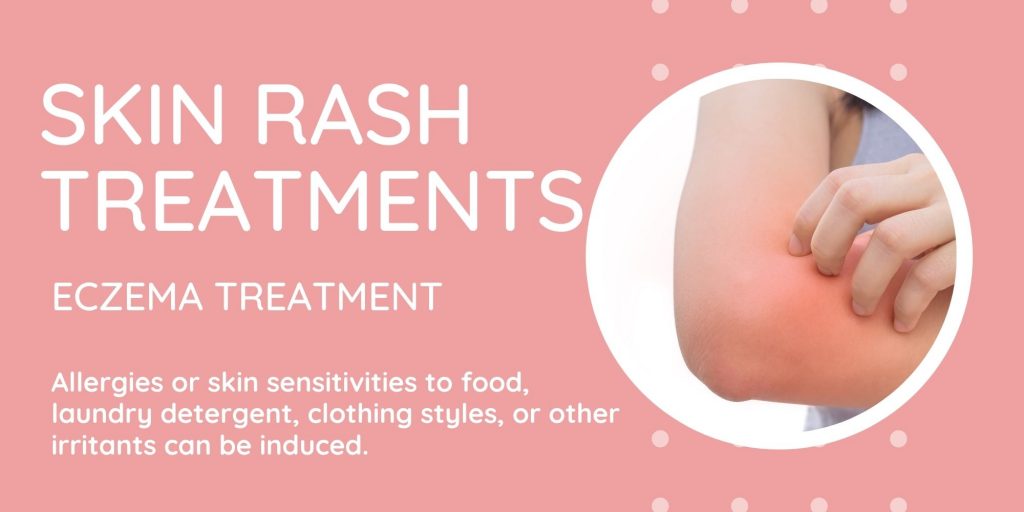
Eczema treatment
Another very common childhood rash is eczema. Your kid is expected to be more vulnerable to eczema if you have a family history of eczema or allergic skin.
Allergies or skin sensitivities to food, laundry detergent, clothing styles, or other irritants can be induced. Helpful eczema therapies include:
- Keeping the area dry and fresh
- Creams and ointments over-the-counter
- Baths of oatmeal
- Determining whether an allergy is active and extracting the allergen
- Working with a pediatric dermatologist to understand the causes of your baby and how to better treat their eczema
Drool rash treatment
There are a very normal drool rash and general facial rash in infants. They grow salivary glands and teeth, so most of the time it’s not rare for them to get drool on their face. The skin can also be irritated by the use of pacifiers, food particles, rising teeth, and regular face-wiping.
In a couple of weeks, Drool rash usually solves on its own, but there are several ways to help:
- Pat, do not scrub the face of your infant to dry.
- Clean with warm water, but skip the use of face soap
- Carry a drool bib for your kid so that their top doesn’t get saturated
- be gentle when washing food off of the face
- Avoid fragrant facial lotions
- Minimize the use of pacifiers
In a matter of weeks or months, certain rashes, such as baby acne, go away by themselves. To treat baby acne, you need not use adult acne medicine.
Topical oil, such as coconut oil, soft scrubbing with a cradle cap cloth, and cleaning the baby’s head should be used to treat the cradle cap.
A pediatrician should diagnose viral rashes such as thrush, measles, chickenpox, roseola, and scarlet fever for the right cure. Fever and other symptoms usually follow these rashes. They may need antibiotics or antiviral medications, or they may need to operate on their own.
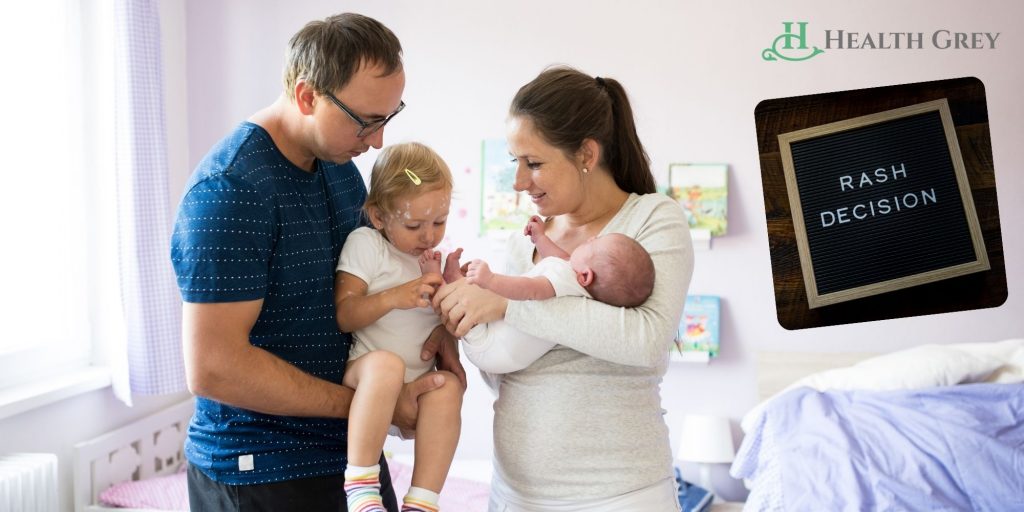
Baby rash prevention
There are several precautions you can take to help avoid rashes, while rashes in babies are very normal. Preventive action that certain persons are seeking include:
- Frequent modifications to diapers
- Maintaining clean and dry skin
- Using irritant-free washing detergent or specially formulated detergent for children
- Wear your child in breathable materials, including cotton,
- Dressing the infant correctly for the season to prevent overheating
- Keeping note of any dietary skin reactions so that you can prevent food causes
- Keeping your kid up to date with vaccines
- Not encouraging strangers or those with disease signs to kiss your baby
- Using lotions, shampoos and soaps made especially for the delicate skin of a newborn
Here is the Best Homemade Face Wash to clean your skin

